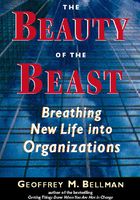The Three Cs
COMPETENCE, COMPASSION, AND COMMITMENT
Work is a tremendous testing ground of who you are as a human being. Through the practice of Zen [Buddhism], I help business leaders become open-hearted, compassionate human beings. I want them to develop their intellectual competencies, too, but not be blind to the people side of business. The real work of leadership is to keep both sides in the service of other people.
MARC LESSER, FOUNDER AND PRESIDENT OF ZBA ASSOCIATES, A COACHING, CONSULTING, AND FACILITATION COMPANY
Three personal characteristics are essential for every successful values-based small business leader. In this chapter, we'll learn the definitions of these character attributes and the importance of developing and modeling them for the entire organization. They reflect the soft skills necessary for the hard work of building successful relationships—the foundation of the five leadership practices presented in chapters 3 through 7.
What Qualities Epitomize the Best Values-Based Leaders?
When I joined Social Venture Network in 1989, cofounder Josh Mailman asked me how we could bring the corporate social responsibility movement into the world's business schools. I talked with MBA students and other SVN members, notably social entrepreneur and investor Richard Perl, and after four years of discussions and fund-raising, Students for Responsible Business was born, since renamed Net Impact.
Like SVN, Net Impact is a network—first of MBA students, now of early- through mid-career professionals and graduate students in related fields as well. Net Impact supports these “new leaders for better business” by providing them with an international network and programming to support their careers, education, and volunteer work. In 2005, the international network included chapters in seventeen countries (over 100 chapters in the United States) and 13,000 members.
The Net Impact mission is to help build that army of young, values-based business leaders who will change the way business is done, creating a better world for all. But for me, the question of what they needed to learn remained unanswered for six years.
At the Seventh Annual Net Impact Conference in 1999, “Leadership in Action: Changing the Rules, Changing the Game,” the managing director at the time, Daniel O'Connor, raised this challenge in front of 600 MBAs gathered at the University of Michigan: “The true test of our leadership is in how we respond to the overwhelming problems and unprecedented opportunities in the world today. To do so, we will need to clarify our purpose, awaken our passion, and realize our potential—as a new generation of leaders destined to inherit and create the most powerful institution in our society.”
I wondered what they needed to develop to clarify their purpose, awaken their passion, and realize their potential as values-based business leaders. In the succeeding years, I learned that the question could be rephrased as, what do they need to develop to be most effective at building healthy relationships? I believe that the qualities of mind and heart, of spirit and will essential to effectively building such relationships come from competence, compassion, and commitment. In this chapter, we'll discuss the importance of these three personal and organizational attributes, illustrating them with leadership examples.
Competence: All of Us Are Stronger than One of Us
The biggest piece for me as a leader is trying to figure out what we need to know better and once I know what that is, making sure we have the right people to carry it out. I know a lot, but what I don't know could kill us. For example, I figured out early on that I needed someone as passionate about finance as I am about communications. By admitting what I like and am good at and what I don't like and am not good at, I empower us to hire great people and let them do it.
ERIC FRIEDENWALD-FISHMAN, CEO OF THE METROPOLITAN GROUP, A STRATEGIC AND CREATIVE SERVICES FIRM FOR SOCIAL PURPOSE GROUPS
First things first: expertise alone does not make a leader “competent.” Moreover, being a competent leader does not mean knowing how to do everything better than everyone else. Not only is that nearly impossible, but as Eric Friedenwald-Fishman says, it's disempowering. If the leader is better than me at what I was hired to do and lets me know it, how motivated do you think I'm going to be?
Being a competent leader also does not mean doing everything yourself. If you do that, what is everybody else supposed to do? While this may sound a little silly, it's a natural tendency for many founders to be insensitive to the need of other people to contribute and feel good about themselves. Founders are used to doing everything themselves and often have trouble depending on others.
Elliot Hoffman led San Francisco's Just Desserts stores and bakery and 250 employees successfully for over twenty-five years, but he finally lost the company. His assessment: “I was out of balance. I was inspired to build an organization that respected people and connected us with the community, but I didn't spend enough time focused on the real nitty-gritty of the business. I felt that if you're really going to be an inspirational leader, you can do that and manage everyday operations, too—'a real man can do it all.' I realized I should have brought in someone who was equally passionate about operations.”
Competent leaders know how and when to let go of control. They unleash the potential of others, motivating them to find their own greatness. In so doing, they create an organization of committed members, each recognized for his or her contribution.
Many of the most competent leaders I've known have had learning disabilities. Dealing with conditions that often went undiagnosed until they were teenagers, they found school difficult. That caused self-esteem problems but also gave them a respect for the abilities of others. One such leader told me, “When I started my company, I was so happy smart people would work for me that I gave them freedom to do things their own way.” These CEOs are revered for their talents and for how they build communities of talented people allowed to use their gifts.
Of course, you don't need disabilities to recognize the abilities of others, to know how to create work that uses their strengths. Yet many competent leaders tell me that the most important thing they do is “hire people who are smarter, who are better at things than I am, and who really buy into our mission and values.” I believe that personal and organizational success is based on this relationship-building skill more than any other.
MY DEFINITION OF
COMPETENCE
A competent values-based leader translates the mission and values of the organization into practice, creating a values-based context for all decision making.
Of course, you need to be sharp, do your homework, and work hard. It's your job to stay on top of the situation. When you're values based, when your style of leadership isn't the norm, attention to detail is even more important for building trust and confidence.
So is leadership competence that simple? Know what you know and hire people who know the rest, while creating the proper context for growth and expression? Not quite. To know when to step in and make hard decisions, a competent values-based leader must set clear boundaries, as personal values and the public marketplace can make strange bedfellows.
The Importance of Boundaries for Values
It's important that your values don't lead to unnecessary business mistakes.
Seth Goldman, president and “Tea-EO” of Honest Tea, the national leader in organic bottled beverages, learned the hard way. He launched what he thought was a great tea, Haarlem Honeybush. Honeybush is a rare indigenous herb the company purchased from Haarlem, a subsistence farming community in the Western Cape province of South Africa. Seth shared a portion of Honest Tea's revenue with the farmers to help them expand, which meant more tea could be produced for the local or international market. But “our values blinded me from seeing that this was not a market-based product. It had ingredients unknown to the consumer and a taste profile they weren't used to. It was unsweetened, and the label was unusual. These were too many steps for our consumer to take, and it flopped,” admits the thirty-seven-year-old straight-talking leader.
A few years later, Seth introduced the first fair-trade-certified bottled iced tea, Peach Oo-la-long, with great success. It had a great taste profile, which meant people understood what they were getting—peach and organic oolong. The label designed used a comic strip familiar to the customer, Bloom County. And the company added a little bit of organic sweetening, which is more customary in bottled beverages. Seth's analysis: “Our products need to be accessible. While I need to make sure that we stay true to our values, and I will continue to listen to my heart, I also have to make sure my values don't take us too far away from the marketplace. For example, we're now bottling not just with glass but also with plastic, which can be environmentally conscious, too. That packaging allows us to get into chains like Target [discount stores]. My job will be to make sure we educate our customers on the ecology—the why and how we are packaging with plastic.”
Seth recognizes that translating values into practice can be complex and that many factors should be taken into account before decisions are made. It means that he knows what he's willing to do and not do in terms of negotiating the values behind how and what Honest Tea produces.
Negotiating Boundaries for Values
Seasoned serial entrepreneur Florence Sender is the CEO of a natural bath and body products company, FoodLogic. Florence is a change agent with a social agenda that promotes responsible, sustainable business practices. As a competent leader, however, she, like Seth, is clear about her standards. In her words, “Those standards are the fabric of my business. For example, the market wants color on the shelf, so we make colored bottles instead of coloring our products. We have standards for the work environments of our suppliers. And we have other rules, too, that are part of our ‘Ten Commandments.' To keep them and negotiate well requires that I have an exceptional amount of industry knowledge and clarity about our boundaries in how we do business. So I need excellent staff to keep me fresh and advise me.”
Florence is clear that FoodLogic is a business and must do business to survive. Though she never violates her values, she acknowledges market realities. For example, when she chooses a supplier, she will select an employee-owned or a minorityowned company over others, but she does not insist that Food-Logic does business only with those companies because “I still have to produce the right product at the right price and make money.”
To see boundary negotiation expertly put into action, let's go behind the scenes to one of Florence's recent negotiations.
Like Seth, Florence recently approached Target about carrying a new product: stress-relieving bath salts called “Bath Rocks.” A woman-run factory produces the salts, an employee-owned company creates the unique packaging, and a facility that employs handicapped people puts them together by hand. The shipping boxes come from a family business, and Florence uses small neighborhood truckers. All are U.S. companies.
The Target buyers told Florence that they have their own approved list of truckers. They also wanted a lower price than she needed to cover her expenses. They informed her that she could lower her costs by having the product made in China. She refused. A deal breaker? Not when your staff has prepared you like Florence's had!
Florence was able to tell the Target buyers exactly what everyone else was doing in the industry. She described her suppliers, asking the buyers, “Do you want to put these people out of business over a few cents?” It was the first time they had even thought of the possibility of doing business differently. She agreed to consider using their truckers. They decided to take the products without further price or cost discussion. The deal was done.
What's negotiable and what isn't? You must know the boundaries where your values meet the marketplace. By the way, after that meeting with Target buyers, Florence went to JCPenney, gave the buyer her list of suppliers before they began to talk, and was asked by the buyer if anyone on the list was from China. When Florence said no, the buyer responded without even looking up, “That's good,” and took the product.
Competent values-based leaders know where their boundaries lie. They negotiate but don't retreat from the edge of their values. They educate one person, one company at a time, building trust and relationships. They listen and assess, for even though people care about how much you know, they care even more about how much you care about them.
Compassion: Selfishly Seeing Yourself in Others
We spend a few weeks each year consuming the product we produce. We live in the same apartments as our clients, take the same hikes, and meet with as many clients as we can when we are in Europe. Customers respond that they feel like insiders, like part of a movement or family, not like clients of a company.
OCTOGENARIAN HAL TAUSSIG, FOUNDER AND CEO OF IDYLL LTD. AND ITS EUROPEAN VACATION RENTALS SUBSIDIARY, UNTOURS, RECIPIENT OF THE 1999 MOST GENEROUS COMPANY AWARD FROM PAUL NEWMAN AND JOHN KENNEDY
Do you feel the joy of others as your joy? Do you bear the grief of others as your grief? Compassion may start with how you treat employees, but for values-based leaders it extends to how you treat everyone and includes the health of your very business, as Carol Atwood showed (chapter 1) by minimizing the stress put on distributors in busy times.
Consider the reasons SVN cofounder Josh Mailman believes that an emerging public issue is the importance of buying and supporting the production of organic food and cotton. Healthier food and a healthier environment are two reasons. But this issue is also essential for the millions of small farmers in the developing world if they are to live without being poisoned by pesticides that they currently use for nonorganic products without the means or knowledge to protect themselves. As world opinion becomes more sensitive to these issues, keeping workers healthy and happy isn't just compassionate. It's also good business.
Compassion is the quality of empathy that leads to a healthy respect for others and a sense of accountability. A cousin of responsibility, compassion often leads to what society calls more responsible actions. However, if compassion is to be sustainable, it must work in the best interests of you and your company, too.
It's important to be clear on what compassion is not. Often, in the interests of being compassionate, values-based small business leaders go too far, overlooking what's really best for all concerned. For example, if you're too generous with your staff, you may undermine the sustainability of the company and their jobs.
Even more dangerous is how values-based leaders react to the need for downsizing when business slows. Often, they are too slow to let people go, disrupting the company's community and viability more than is necessary. During the recession of the 1990s, I heard the same story repeatedly. To paraphrase, “I held on to people as long as I could. Then I realized I just had to let some go. So I let go the least valuable first but felt so guilty that I gave them great severance packages. Soon I found out I had let go far too few people. By the third round of layoffs, I was letting go some of our best people, but by then I couldn't even give them a minimal severance package.”
Waiting too long, being too generous at first, and laying off too few people at a time compounded these leaders' problems. That's why competence and compassion are tied so closely together. One of your biggest responsibilities is to keep people employed in fulfilling, well-paying jobs. Better yet, many values-based leaders are creating more democratic cultures. Employees vote on what to do. Facing layoffs, they often choose to save jobs by reducing their work hours and compensation until business picks up.
MY DEFINITION OF
COMPASSION
A compassionate values-based leader respects the individual needs of all who are impacted by the organization, acting in the best interests of all.
Of course, compassion is about caring for others and, at times, putting their needs before yours. But values-based leaders go one step further—they try to transform a capitalist system that leaves many in its wake into one where everyone is considered and all can win. That is, they try to replace the invisible hand of competition with the visible hand of compassion. Those are big goals accomplished primarily through many small, incidental acts of leadership that make a fundamental difference in how you do business.
As a small business leader, you are likely to underestimate your effect on others—the symbolism of your every act. And when you're values based, the scrutiny is even greater. Everything you do and say carries greater weight and importance than if it came from anyone else. Your opportunity to promote compassion, therefore, is determined by your perceived authenticity and by your respect for the needs of running a business.
Treating People as Equals
It's important that you model what compassion is and understand what it is not.
Gun Denhart carries herself as someone who doesn't want to intrude. A natural, lithe woman who's comfortable with herself, Gun's presence draws respect through her quiet self-confidence and interest in others. Cofounder of $100 million children's clothing company Hanna Andersson, CEO Gun led finance for nearly twenty years, but she also exemplifies the soft skills. She's the epitome of the values-based leader who respects her followers. Compassion may be most evident in her employees' community involvement, yet Gun models it in many routine daily activities.
For example, Gun believes it is important to be respectful of all people's time. At Hanna, meetings start on time since “I don't want to penalize those who show up on time. I think this practice leads to respect for others in many ways throughout the company.” Another example is on display when Gun walks into an office where coworkers are talking, trying to solve a business issue. What does she do? “I wait and let them continue talking until they've finished. If it goes on for a few minutes, I'll leave and come back. But I don't break in, interrupting their work. Unfortunately, I've seen that rudeness many times when ‘important people' come into a room.”
Gun also has learned what compassion does not mean: “When we started Hanna, I did a lot of listening, perhaps because I am a foreigner [Swedish] and not familiar with the American way. I thought we could operate as a democracy, all peers. Up to fifty people, I thought we should all sit together and make decisions by consensus. I was so na?ve. I soon learned that there would be times when we would not agree and that I then had to be the one to make the final decision.”
Also partially due to her European heritage, Gun always saw Hanna as a lifelong family. She thought that when people came to work at Hanna, they'd stay forever. If someone left, she felt the company had failed in some way. But she learned that if Hanna was truly a compassionate company, “our job was to help [employees] learn and grow on the job and to respect their need for a balanced life. If at some point they decided to leave the company, we could feel good that they had learned new skills and hadn't sacrificed their families for their jobs. Other times, if we had to let them go, we felt it was best for all concerned.”
Gun and her husband, Tom, the head of design, sold Hanna a few years back. Gun now leads Hanna's children's foundation in the Portland, Oregon, area, working elsewhere as well to advance children's welfare.
She has learned that compassion in action must be tempered by the realities of running a business—any business. How that's done depends on your leadership style.
Loving and Being Loyal
The relationship between compassion and loyalty is delicate, with no one right way to balance the two. Laury Hammel operates differently than Gun Denhart does but with similar values that respect people and relationships.
As unassuming as Gun appears when you first meet her, the opposite is the case when you meet the owner and president of the five Longfellow health clubs. Laury is a ball of energy, a force field of passion and compassion that he wears on the sleeves of his ever-present athletic clothing outfit.
Laury takes it personally if anyone decides to leave his company. He still uses the same architect, the same insurance salesman, and just about all the same vendors as he did twenty years ago. When offered a lower price by another vendor, he gives his vendor a chance to come within 10 percent of that price to keep the business. All his vendors have been able to do it so far. “Hey, our vendors have to make a living, too,” asserts Laury. “And by keeping these relationships, it allows us to spend our time on more creative ways to serve our customers.”
Longfellow health clubs are known around town as the “love clubs.” Their motto: “Loving our customer. Loving our staff.” How does this actually happen? “We can't even get mad at you. You're so nice!” exclaimed a couple. They had come for a swimming lesson, after which they were flailing around in the lap lane at a time when it was bothering serious swimmers. The lifeguard suggested another time nicely, but they were upset. They stormed their way to the front desk.
“Our front desk person for over twenty years, Sandie, knew the couple had joined that day,” explains Laury. “When they got to Sandie, she walked around the desk to them and said, ‘I think you need a big hug. We're sorry' That's why they couldn't stay mad at us.”
That same philosophy translates into how Laury treats his managers and employees. He admits that he has kept people on too long: “Sometimes we don't fire soon enough or at least ask some tough questions of certain employees early enough.” At times this has caused havoc. In one instance, Laury knew a manager was having a tough time but overlooked it. When a number of good staff members left because, as he was told, his loyalty to his managers got in the way of his staff, he took care of the situation. He met personally with the manager, explained clearly what he was told and why he was letting the manager go, listened at length to the manager's explanation, and then let him go on good terms.
Laury also adjusts to the needs of individual staff members. A few years ago, he hired a personable tennis instructor whom my club had just let go because of his inability to show up consistently. He's a hemophiliac. Laury made it clear that he should do what he felt he could and not worry about it.
People notice those kinds of things. And compassion spills over to other staff behavior. In the past, when Laury has had financial troubles at the clubs, the first people to offer him money unsolicited have been his staff. The second group has been his loyal customers.
Compassionate values-based leaders model daily in many small ways how they care for others and are sensitive to what's required to build strong relationships and maintain a healthy business. To maintain that balance through the ups and downs of running a company takes a lot of determination, will, and commitment.
Commitment: It's Not about the Money
Candle Cafe is not a business but a lifestyle choice for us, our staff, and our customers. We've had a lot of employees and customers with us eight to fifteen years now and have changed their lives and ours through learning about food and health. We bring organic fresh food from the farm to your table, and as we use no animal products, our business is committed to nonviolence.
BART POTENZA, CO-OWNER WITH JOY PIERSON OF TWO NEW YORK CITY VEGAN RESTAURANTS
In 2005, Bart Potenza was sixty-seven years old and proud of the fact that he hadn't been sick once in the past thirty years. For Bart and co-owner Joy, Candle Cafes, the first “green” restaurants in New York City with extensive in-house environmental programs, are an expression of who they are and how they live. It's how they touch the world. They're as committed to those cafes as they are to themselves and each other.
People can smell commitment in a leader. They know why you're here and why you're doing what you're doing. And your commitment inspires commitment from them. So what is this quality of commitment? What is this quality that most of the Fortune 500 CEOs I've talked with desire more in their workforce than any other?
Commitment is easy when you're starting out. Salaries are low or nonexistent and company stock has little value. Hopes and dreams are your daily bread. Of course, you attract people committed to the social need that your business addresses. Why else would you and they be there? This is a valuable advantage for small business leaders.
Commitment is commonly believed to be tested when business doesn't go well. That's true, but in my experience the real test is when you have financial success. Employees join with good starting salaries. Company stock has value. You may receive that first offer “you can't refuse” for the company or your services. What should you do?
Take a moment. Why should you be concerned when you're just starting out? If you take in outside capital, you do need an exit strategy so investors know how they'll get their money back. If business doesn't go well, you try to make it work. But if your company is a success, the question is, have you built it in a way that lets you do what you want to do?
The sell/don't sell issue—the legacy issue—dominates discussions of what it means to be a committed leader in many small business circles. SVN members have built sizeable companies, and some have sold them to Fortune 500 companies. A few had lost control of their companies and had no choice. Others say they sold to have a larger social impact through the increased resources and customer bases they can now access.
The “don't sell” contingent argues that if you're committed, you can't sell your company to some anonymous large entity that you know will never be as committed as you are to the same cause and values. Similarly, if you take your company public, not only do you lose control but also few founders stay on for more than a year or two. The argument is, therefore, that if you're truly committed, you'll maintain control of your company no matter what and will do what's necessary to support that decision right from the start.
Danny Grossman launched Wild Planet Toys in 1993 to provide positive experiences for boys and girls without relying on violence. After ten years of significant revenue growth, he thought seriously about selling the company. After all, didn't he learn at business school that you build a company, flip it, and then move on? He recalls: “We were going through the dot-com boom, and it could be distracting and demoralizing to run a real business in that environment. But when I realized that my two sons were the age of our target market, I fell in love with the company all over again.” Taking a leadership role in the industry, Danny is now recommitted to building a better world for sons Noah and Jonah and to taking the company to new heights.
In 2000, Gary Erickson and his wife, Kit Crawford, faced the sale of Clif Bar, the $100 million maker of energy bars. They decided not to sell and bought out their partner, and Gary took back the CEO reins for four years. In 2004, he turned over the job to Sheryl O'Loughlin, who had been groomed for the job for several years. Gary counsels: “Leaders don't let go soon enough. They wait too long, can't find someone, and have trouble delegating. The company loses momentum; you burn out and sell out. Sheryl allowed me to recommit to the company.” Gary is now involved in the “aspects of the company I love, like new product development,” keeping him as committed as ever to Clif Bar.
Commitment may seem easier in a cause-driven, not-for-profit organization, yet many such companies suffer from inadequate funding and employee burnout. For-profit businesses may be mission driven, but the demands of the financial markets can end up directing the daily work. That's why your role—how you are committed—is as essential as the cause itself.
MY DEFINITION OF
COMMITMENT
A committed values-based leader brings his or her deepest desires and most profound dreams into the core of the organization and its community in a form that's vibrant, meaningful, and inspirational for all stakeholders.
A few years ago, the CEO of a multinational asked me to fly to Europe to find out why his company's sales had plunged. I engaged the twelve division presidents in all-day and all-night sessions. At four in the morning, the president of the largest division, an eighteen-year veteran and the 11,000-person company's second ranking woman, who rarely spoke at these meetings, admitted, “I don't believe any more for the first time in my career. And if I don't believe, how can my people believe?”
You should believe that your work at your company is the best way to achieve your personal mission. But few companies will last your lifetime, and over time, as you and your company grow, more effective ways may emerge for you to make a difference. Commitment is not about the company or its form. Commitment is about being true to the mission that attracted people to your company in the first place—starting with you.
Commitment as If the World Is at Stake
Depth and clarity of commitment help you motivate others to be as committed as you are. When people hear your name, can they say immediately what you stand for?
If you didn't know that she could be a salsa dance champion, you'd think Amy Domini is all business. In many ways, this bright, iron-willed leader is just that. Commitment personified, Amy's mantra is clear: “Remove the barriers to socially responsible investment. If we do that, it will allow us to tell a story of a more just and sustainable planet for our children to grow up in. I don't think there's any other force strong enough to stand up against finance.”
Back in 1981, Amy researched the phrase “corporate social responsibility.” Three weeks later she received one relevant article. For years, Amy believed that the world was at stake and she was the only one who knew it. She confesses, “That's why I was so desperate to hang on until we made this happen.”
In 1988, Amy cofounded KLD Research to promote the importance of a company's social responsibility record. On May 1, 1990, she launched the Domini 400 Social Index, a common stock index like Standard & Poor's 500 Index (the S&P 500). The two indices share 250 companies. The 150 companies that complete the Domini 400 Social Index provide industry representation of companies with particularly strong social characteristics. The index has outperformed the S&P 500 over the past fifteen years, thus demonstrating the importance of social screening in valuing corporations.
Commitment? Amy went eleven years without a salary. She reached her limit on her credit cards and rented out rooms in her house. She held on to her day job as a trustee with Loring, Wolcott & Coolidge, advising socially responsible investors. What did she accomplish? Amy is pleased to tell you: “No one knew what a sweatshop was. Today, we get a ‘friendly' company, the Gap, to be a ‘fair labor' poster child, and then Nike and others follow by listing all their contract factories. Today, Procter & Gamble becomes the largest producer of fair-trade coffee. Today, Fortune 500 CEOs call and ask how they can do a corpo- rate sustainability report. Today, over 2,000 companies have corporate sustainability reports. It's now an established field.”
If you know Amy, you know what she stands for. Known affectionately as the “godmother of the social investing movement,” she translates her commitment into nurturing her staff of thirty, educating them to grow on the job so that they can become as committed as she is. She sends at least six people each year to the Socially Responsible Investing conferences in the Rockies, sends people in rotation to take relevant courses, and introduces her staff whenever possible to leaders in the field.
Amy has joined the select few named by Time magazine in 2005 as one of the most influential people in the world and was the only one selected from the world of finance. During recent years, she has used her fame outside her company, serving her mission through speeches, writings, and considerable travel to develop more converts committed to people and the planet through capital.
Finding the Best Form for Your Commitment
Many of our most financially successful SVN members would laugh at the mention of money when they think back to how they started their companies. To paraphrase, “It was always about making a contribution, doing something for others without much of a sense of how we were going to make money doing it. We hoped that would work itself out.”
Commitment often leads to financial success, but if you don't have that commitment, it's much more difficult even to get started. When I owned my Vermont-based environmentally responsible dog biscuit company, my partner and I had a chance to grow the company substantially, but he didn't want to do it. Given the excellent financial outlook, I thought I'd do it alone. I went to a venture-capitalist friend who had told me years before that he'd back any business I'd work at 100 percent of my time.
I explained the business and my 100 percent time commitment. When I finished, he turned me down cold: “I wouldn't give you a cent. You sound like a brainy MBA. I don't feel any heart, any real commitment to what the company is trying to do.” He was right. I was building the business primarily for my partner, who was a dog lover. I had no real interest in the product. I saw the excitement of the financials, not of the mission.
That's not what it's like for Jane Hileman, founder and CEO of the American Reading Company (ARC), home of the 100 Book Challenge, a systemic independent reading program to help every child in America read at or above grade level. Commitment is apparent at every level of the program, from CEO to consumer.
Jane was a schoolteacher for twenty-eight years and for twenty-eight years was frustrated with the huge achievement gap between rich and poor students. She believed that this was largely the result of a difference in their reading habits from birth. She reflects: “All I thought about was how to get the kids to read. The average reading level in our urban high schools is third- or fourth-grade level, and that's of the 50 percent who have actually stayed in school. I was determined to figure out a way to change this unnecessary situation, whether through a nonprofit or for-profit I wasn't sure.”
The best form for Jane's commitment turned out to be a corporation. Jane grew the company around her mission as “it's never been about the money. Many of us are lifelong educators who have spent our careers working in the inner cities. We're 100 percent committed to getting the kids to read, and every investor knows that's what we're about.” In the first three years, Jane grew ARC into a $5 million company without any financing other than what came through customer orders.
In eight years, ARC has grown to $13 million in sales and 100 employees in 2005, with the 100 Book Challenge program implemented in 650 schools and 26 states. Jane likes to hire family and friends. She acknowledges that others consider this a mistake, “but I know them and know they're as committed as I am. The community feeling is important to me.” To demonstrate the clarity of their commitment, all Jane's employees are asked to write a business plan and connect what they plan to do at ARC with what they want to achieve in life.
ARC's mission is to get students committed, too. “Children have to be agents of their own lives,” notes Jane. The students choose what level and type of book to read. They must read at home and at school, and their reading is tracked with log sheets like a Weight Watchers program. They earn prizes and medals for who is the most committed, who is working the hardest, not for who is the smartest. ARC also teaches the teachers how to support the students.
In January 2005, Random House became a minority shareholder in ARC. Jane maintains full operational control with written agreement to a triple bottom line that includes her commitment to high quality and social responsibility along with profitability. But she also wants to grow and get to scale, as “we're committed to the type of paradigm change that should sweep the country.” Now that's something worthy of commitment.
Summary: The Three Leadership Attributes
This chapter introduced the three personal characteristics that are the foundation of successful values-based leadership practices: competence, compassion, and commitment. They combine the traditional requirements of excellence with a leadership style that goes beyond immediate financial returns and personal success. They allow you to clarify purpose, awaken passion, and realize people's potential through mutually beneficial business relationships.
Competence in leadership is not about knowing how to do everything better than everyone else or doing everything yourself. Competent values-based leaders translate the mission and values of the organization into practice, creating a values-based context for all decision making. They help people reach their potential and are aware of the daily requirements for business success. They know how and when to let go of control, hiring people who complement their abilities and passions. They recognize the boundaries between their values and market requirements. They know how to manage that delicate balance, not letting values blind them from perceiving customer needs clearly.
Compassion in leadership is the quality of empathy that leads to a healthy respect for and a sense of accountability to others tempered by business needs. Compassionate values-based leaders respect the individual needs of all who are impacted by the organization, acting in the best interests of all. They don't mistake compassion with being overly generous with staff or with being too slow to fire people when necessary. They're comfortable making hard decisions with tough love.
Commitment in leadership begins with a clear communication of the purpose of the organization and the long-term plans for the business and its founder. Committed values-based leaders bring their deepest desires and most profound dreams into the core of the organization and its community in a form that is vibrant, meaningful, and inspirational for all stakeholders. That depth and clarity of commitment allows them to attract and motivate others to be just as committed. While the form of commitment may change, the mission remains.
In the next chapter, I present the first of five practices of successful values-based leaders: turning values into value. As in all of the practices, successful leadership comes from your ability to infuse your organization with competence, compassion, and commitment—your skills in building relationships that help you realize your dreams as you help others do the same for themselves.















